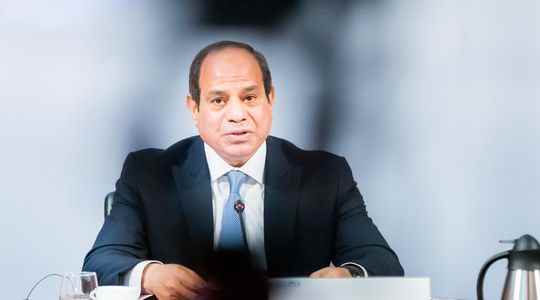Abdel Fattah Al-Sissi wanted to model Egypt in his image: modern, imposing and ambitious. A true pharaoh of the 21st century, the Marshal launched “megaprojects” across the country after his 2014 coup. New cities, a high-speed train line between Cairo and Alexandria, the largest museum in the world in Gizeh or, again, a brand new capital just a few kilometers from Cairo… Nothing was too majestic for the new master of Egypt.
Thanks to this work policy, Al-Sissi mobilizes 6 million workers, which keeps unemployment at a reasonable rate (9.3%) and attracts foreign capital. But the economic crisis calls into question its pharaonic ambitions, making them more incongruous than ever. Already, its megaprojects are gathering dust.
Since the beginning of the war in Ukraine, the country has been going through an economic storm that nothing seems to be able to stop. In six months, the prices of basic food products have tripled, inflation has reached 15% and the government has decided to cut off electricity in certain neighborhoods in order to save natural gas. To make matters worse, the Egyptians will soon have to face a shortage of tea, their favorite drink. The biggest local brand, the giant El Arosa, has warned that it can no longer pay for its imports of raw materials, at a time when the Egyptian pound is falling on the markets.
Cairo bears the brunt of its dependence on imports. Thus, 80% of its wheat comes from Russia and Ukraine. “The Egyptian economy only works in the short term, almost day by day, explains a European source on the spot. By producing little and continuing to bet on imports, the regime has never started the necessary reforms.”
Megaprojects that bring nothing
So, when the government forces Egyptians to limit air conditioning to 25°C (instead of 20°C), reduces public lighting and plans to reduce subsidies on bread, the specter of the Arab Spring does not take long to reappear. . “Social unrest could occur in a few months if the economic situation does not improve. Meanwhile, megaprojects are very expensive – more than 280 billion dollars in eight years – but yield nothing”, insists Matteo Colombo, Egypt specialist at the Clingendael think tank. And to clarify: “For the moment, the Egyptian street remains rather calm in the face of inflation, mainly because it has become very risky to demonstrate in Egypt, but also because the government has found temporary solutions, such as the importation of wheat from India.”
Some politicians, however, are beginning to speak out. MP Mustafa Bakri, who is close to the regime, believes that “the people and the suffering of citizens should be the priority”, adding that “some projects must be temporarily stopped due to the war in Ukraine and the cascading global crises”. In a country where the debate no longer exists, this argument is spreading throughout the political class.
For now, the major works continue. At least officially, with some sources indicating that the majority of construction has been frozen until the end of the economic crisis. “If the government puts its megaprojects on hold, it will do so discreetly in order to avoid any image of weakness, maintains Matteo Colombo. With these projects, the leaders say they are building the future of Egypt, which legitimizes their power and hides the bad situation of the country, in particular that of the poorest. If not a good economic strategy, it is a good communication strategy.”
The mirage of “Sissi-City”
Especially since it masks another reality: these projects did not wait for the crisis to fall behind schedule. The inauguration of the new Egyptian capital, nicknamed “Sissi-City”, has once again been postponed to 2024, when it was originally announced for 2020, then for the end of 2021.
While waiting for better days, the Marshal is counting heavily on the privatization of the Egyptian public sector to bail out its economy. Saudi and Emirati funds have bought up whole swathes of the energy industry in recent months, in exchange for several billion dollars. “Without this money, Egypt would find itself in a much more serious economic situation, notes Matteo Colombo. But this has consequences for Egyptian diplomacy, which can move away less and less from Saudi positions, particularly on the subject of Yemen.” Previously very critical of Riyadh’s action in this war, Al-Sissi is now discreet on the subject. The price to pay for having a brand new capital.
